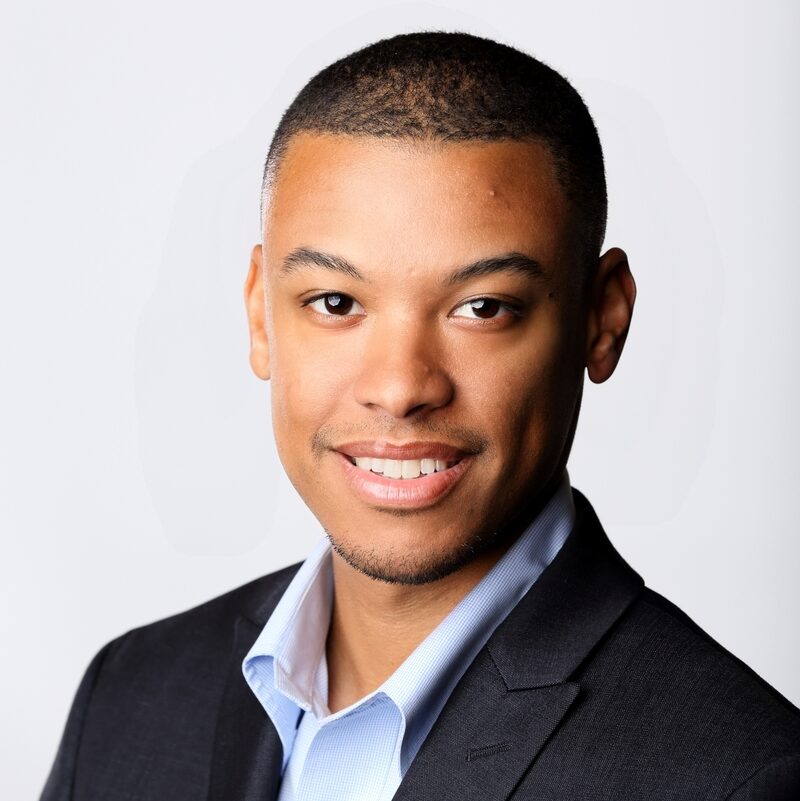Kevin Lopes ’05, the current senior director of business development at ESPN, was one panel member offering advice to aspiring media professionals. PHOTO CREDIT: Harrington School
Journalism is a business of telling stories, and the four journalists of the Harrington School of Communication and Media Professionals Panel had a lot to tell students at the University of Rhode Island.
The panelists, Vladimir Duthiers ‘91, Kevin Lopes ‘05, AJ Walker and Danielle Johnson, gave students advice about going into the field of journalism. The panel was moderated by Harrington School Director Ammina Kothari, who highlighted the expertise of the four panelists and each of their connections to the URI community.
Duthiers is a correspondent and anchor for CBS News with experience working as a correspondent for CNN covering West Africa. Walker is a news anchor who also focuses on documentaries and has won an Emmy for her work. Lopes serves as the senior director of business development at ESPN. Johnson is a radio personality who recently founded SparkFM, an online radio station.
All four panelists emphasized the importance of connections in the business, saying that they are just as important, if not more so, than grades when it comes to getting a job.
“Your network is the single greatest asset to getting an entry-level position in this industry,” Lopes said. “Getting in the door is based largely on who you know.”
Lopes also told a story about the process of him getting hired by the Big East Conference, which he described as his “ideal job.” By the time he spoke with then-Big East Commissioner Mike Tranghese, Tranghese interrogated him, asking how he had “half the state” calling him and speaking on his behalf.
Duthiers also spoke about his biggest connection while he worked with CNN — Anderson Cooper. He was initially hesitant about reaching out to Cooper after meeting him, and said it took him three months before he “got the nerve” to talk to Cooper.
“From that moment forward, he became a guiding force in my career,” Duthiers said.
The panelists also focused on how important mentorship was as they were starting their career. Walker said that she didn’t feel as though she was given opportunities and treated with respect during her college experience, and has made sure to be available to help mentor younger journalists herself after her past experiences.
“I went to a school in Tennessee, and it was kind of a good-old-boy system that I felt was not conducive to getting me into the business,” Walker said.
The four also talked about taking advantage of opportunities, and Duthiers said that one of his biggest opportunities —his coverage of protests in Ferguson, Missouri following the shooting of Michael Brown— came from his higher-ups underestimating the news value of the story.
“It was my second day [at CBS], I didn’t even have a key card or an ID,” Duthiers said. “I think the bosses sent me there because they didn’t think it was that big of a story. Ultimately, within a few days, it turned out to be one of the biggest stories in the country.”
Duthiers also recommended learning how to contextualize data, to which Kothari said that she hoped to offer a class on data journalism starting next year.
Johnson touched on interpersonal communication and relationships, which she described as one of the most important skills to have within the media field in general.
“You have to have real great people skills to continue to advance and to let people trust you,” Johnson said.
After giving their advice and answering questions, the four panelists told those in attendance to contact them and that they would like to connect and help students as they enter the industry.
“I got [to ESPN] because I’ve leveraged a network that I built myself over the course of four years,” Lopes said. “And now I coach students a lot.”





